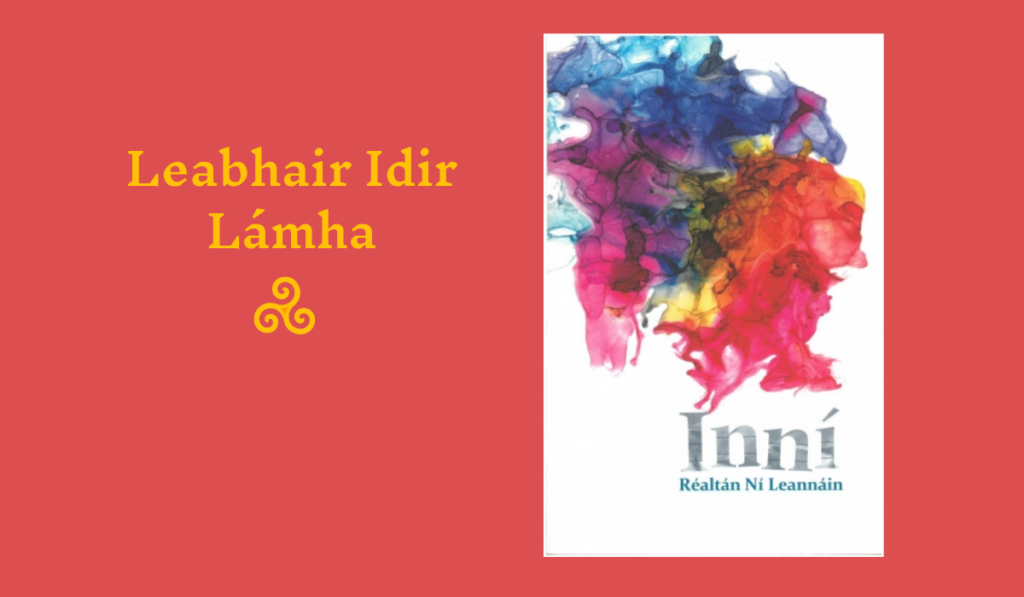
Inní|Réaltán Ní Leannáin| Éabhlóid|ISBN 978-1-9160470-6-8
by Cathal Póirtéir
In Réaltán Ní Leannáin‘s work there is her hallmark of tightly woven ties of family, neighbourhood and religion, central to the lives of the women and girls who live in working class areas of Catholic Belfast. True for her earlier short story collection Dílis (2015), and her novel Cití na gCártaí (2019), the vividly drawn vignettes of Belfast are likewise a pleasure in her new collection, Inní (Éabhlóid).
The author is Belfast-born and reared; the ease with which she creates atmosphere and a sense of place bears testament to her intimate knowledge of the city and people she writes about.
Many of the stories reach back to earlier, troubled times in the city’s turbulent history, which Ní Leannáin makes relevant through universal themes of inequality, hypocrisy and betrayal. If sectarian tension, institutional power and political history play some role in her stories, the focus is firmly on the young girls and women within the cultural and physical confines of narrow streets—and sometimes narrow minds.
Inní has many strengths, particularly the author’s ability to create human and believable characters living in a palpable world. Everything which happens to them feels possible, credible and alive. With a number of the stories I became so invested in the characters that having finished the story, I found myself imagining what happened to them afterwards. Ní Leannáin is skilled with dialogue, and with surprise revelations which cast revealing light on what has gone before.
Ní Leannáin has the sleight of hand which takes the reader on a different path at the start of a story, but then swerves into something unimagined from the opening paragraphs. While the stories and characters are often bright and vibrant in many ways, the underlying themes and hidden forces are much darker: rape; intimidation; suicide; illicit relationships; moral dilemmas; forced adoption; sectarian conflict; mental illness; loss and grief.
This litany of woes might give the impression that the stories here are dark and depressing—but that’s not the feeling the book leaves you with. Certainly, many of them cast an eye on the sad and distressing realities of some women’s lives, giving us pause for thought. But there’s also much love and generosity, friendship, humour and innocence, and a determination to survive in these stories.
Out of the dozen stories featured in Réaltán Ní Leannáin’s second collection there were some that stood out. The powerful title story Inní is set in contemporary Dublin and deals with classroom and staffroom frictions that take a horrible turn following a school dance.
Banríon shows how a misunderstanding and paramilitary politics in Belfast can come together to complicate a parent-teacher meeting, and result in threatening consequences.
In Brídín an unexpected legacy brings a hidden family history to light and poses a problem for its recipient and her family, and the ending of Dorchadas was not what I had been expecting—bringing us right into the middle of a sad tale of sad times, that just won’t go away.
This is a fine collection of short stories, urban in their setting, contemporary in their feel and all written in a most readable uncomplicated style and language.











